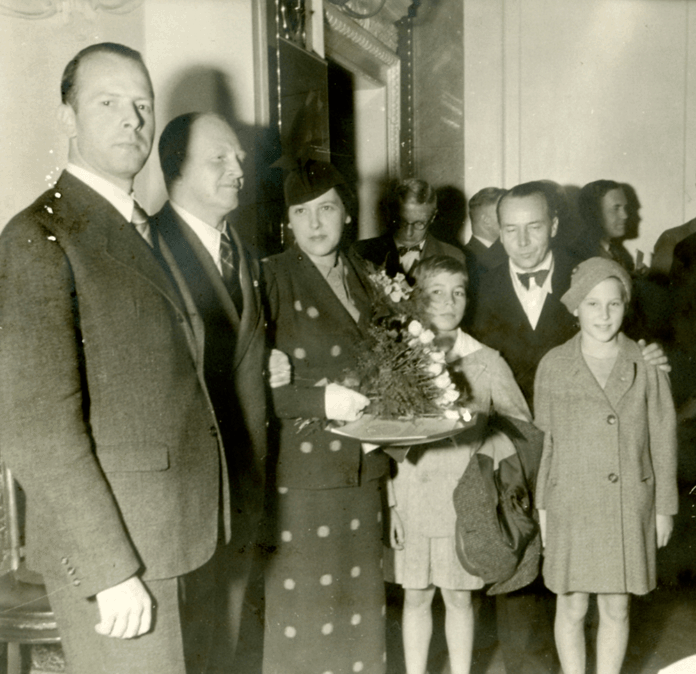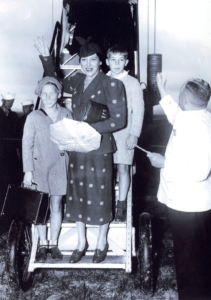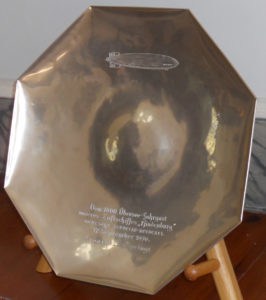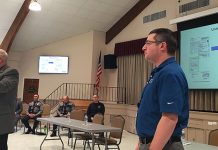
 LAKEHURST – Powdered milk, a glass smoking booth and jigsaw puzzles. That’s how childhood Hindenburg passenger Anne Springs Close might sum up her three-and-a-half-day journey on the German airship 81 years ago.
LAKEHURST – Powdered milk, a glass smoking booth and jigsaw puzzles. That’s how childhood Hindenburg passenger Anne Springs Close might sum up her three-and-a-half-day journey on the German airship 81 years ago.
Close was only 10 years old when she set foot on the 804-foot-long airship after spending the summer of 1936 in Germany with her family. Her father, a pilot in World War 1 who was an ace for first the British then the Americans, flew back home on the German Zeppelin that July. He then sent her mother, Frances Ley Springs, a cablegram that said it was perfectly safe – bring the family!

“My mother went and bought five tickets, and somehow she got ticket number 1,000,” said Close, adding that they made a little “to do” about it in Frankfurt, presenting her mother with a platter made out of Duralumin, the same lightweight aluminum metal used in the Hindenburg support structure.
It was the Hindenburg’s last flight that summer. “I remember a good deal about it,” said Close.
She remembers the airship being a very confined space, with not much room to walk around in. She and her brother Sonny spent much of their time looking out the windows, which she says unbelievably, had no screens. Jigsaw puzzles sat on every table to pass the time, but many of the passengers – mostly German businessmen – preferred to spend their time smoking.
Close said that passengers would put their cigarettes and cigars in a big metal box, and when they were ready to smoke, enter what looked like a large glass telephone booth.
“My mother spent a great deal of time in this glass booth – it was very busy.”
As for the food, there were two seatings for each meal, and she remembers there being a chef and the food being fairly good, although she wasn’t too interested in food at that time. The only downfall? “They had powdered milk, which I hated.”
Sleeping conditions were cramped as well. Close and her mother slept in a small compartment, while her brother and uncle slept in hammocks up a catwalk.
The Lakehurst-bound flight was supposed to take only three days, but because of strong winds the airship had to fly further north and was delayed until 6 a.m. the next morning. Close and her family were expected to meet guests in New York, but had to alert them they wouldn’t be there until the next day.

“I really forgot about it for 50 years,” said Close. “People seem more interested in it now.”
What she hasn’t forgotten about is the day she heard about the fateful Hindenburg explosion on the radio nearly a year later, on May 6, 1937. Close’s father was home entertaining a German pilot who he had fought against in World War 1. As they sat comparing notes and reminiscing about dogfights they had been in together, Close and her brother ran into the den to tell them what they had just heard on the radio. Everyone was devastated to hear the news.
While there has never been a definitive cause for the explosion, Close pointed out that everyone was fearful of fire at that time. “We were aware of the fact that any smoking had to be done in that glass booth.”






